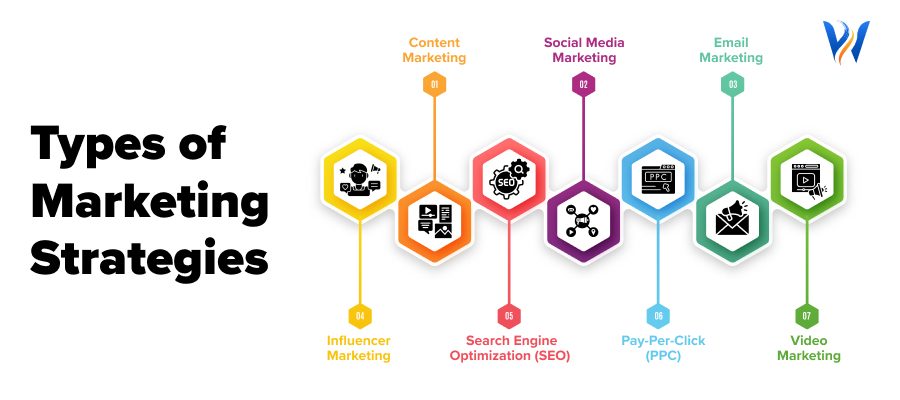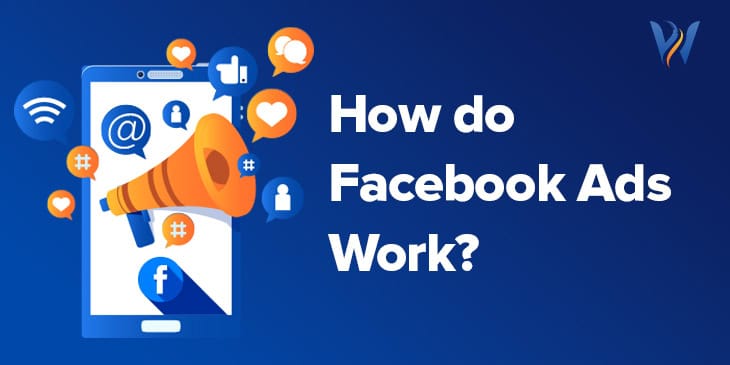In today’s highly competitive digital landscape, having a well-crafted marketing strategy is essential for business success. Whether you are a startup or an established enterprise, understanding the marketing strategy examples and how they can be applied to your unique needs is critical. A marketing plan serves as the roadmap for your business, directing your efforts towards achieving growth and establishing a strong presence in your industry.
In this blog, we’ll explore various types of marketing strategy, offer examples, and provide tips on how to create a personalized plan. We’ll also discuss how to optimize your digital efforts, provide insight into marketing strategy companies, and more.
What is a Marketing Strategy?
A marketing strategy is a comprehensive plan that outlines a company’s overall approach to promoting its products or services to its target audience. It includes various components such as objectives, key performance indicators (KPIs), tactics, target audience, and the tools or channels used to reach potential customers. Crafting an effective marketing strategy can make all the difference in ensuring that your efforts are focused and aligned with your company’s goals.
According to a report by HubSpot, 63% of businesses say that generating traffic and leads is their biggest marketing challenge.
Different Types of Marketing Strategy
There are different types of marketing strategies that businesses can implement based on their goals, resources, and industry. Here are some of the most effective marketing strategy examples:

1. Content Marketing Strategy
Content marketing is one of the most widely used marketing tactics today. It focuses on creating valuable, relevant content to attract and engage a target audience. By delivering high-quality content consistently, businesses can build trust and authority in their niche.
- Example: A SaaS company may offer informative blogs, case studies, and tutorials about the software it offers to establish itself as a thought leader.
2. Social Media Marketing Strategy
Social media marketing involves leveraging platforms like Facebook, Instagram, LinkedIn, and Twitter to build brand awareness, foster customer engagement, and drive sales. By utilizing organic and paid methods, companies can create targeted campaigns that resonate with their followers.
- Example: A clothing brand may run Instagram ads targeting fashion enthusiasts, using high-quality images of its latest collection with special offers.
3. Email Marketing Strategy
Email marketing remains a powerful tool for nurturing relationships with leads and existing customers. A strong marketing plan using email can increase customer retention, drive repeat sales, and engage with your audience personally.
- Example: An e-commerce site could send personalized recommendations or discount offers to users based on their browsing or purchase history.
4. Influencer Marketing Strategy
Influencer marketing capitalizes on the credibility of individuals who have a significant following on social media platforms. This strategy has proven to be particularly effective for brands in the beauty, fitness, and lifestyle sectors.
- Example: A cosmetics brand might collaborate with a well-known beauty influencer to showcase how their products work, driving sales through affiliate links.
5. Search Engine Optimization (SEO) Strategy
SEO is essential for any digital marketing strategy Optimizing your website and content for search engines helps improve your rankings and visibility. This strategy involves keyword research, on-page SEO, link building, and technical SEO.
- Example: A digital marketing strategy consultant may recommend optimizing product descriptions, meta tags, and blog posts to improve search engine rankings and drive organic traffic.
6. Pay-Per-Click (PPC) Advertising Strategy
PPC campaigns, including Google Ads and Bing Ads, are a quick way to generate traffic and leads. With PPC, you only pay when someone clicks on your ad, making it a cost-effective option for businesses looking to increase visibility.
- Example: A tech startup may use Google Ads to target keywords like “best AI software for business,” bringing in highly qualified leads.
7. Video Marketing Strategy
With platforms like YouTube and TikTok gaining massive popularity, video marketing is an essential part of a comprehensive marketing strategy plan. Creating videos that educate, entertain, or inform your audience helps you stand out in the crowded marketplace.
- Example: A fitness brand might create how-to workout videos or nutrition tips, sharing them on YouTube and social media to engage with their target audience.
Marketing Strategy Samples: How to Build Your Own Plan
Developing a tailored marketing strategy plan requires a deep understanding of your target audience, objectives, and available resources. Below is a simple checklist that can help guide you through the process:
- Set Clear Goals
Define what you want to achieve, whether it’s increasing brand awareness, generating leads, or boosting sales. - Understand Your Target Audience
Who are you trying to reach? Consider demographics, behaviors, and needs. - Choose the Right Marketing Channels
Based on your goals and audience, decide on the best channels—social media, content marketing, SEO, PPC, etc. - Allocate Your Budget
Determine how much you can invest in each channel. Be sure to keep track of ROI for each tactic. - Create Content and Campaigns
Develop content that aligns with your audience’s needs and your brand’s objectives. Run campaigns that are engaging and targeted. - Monitor and Optimize
Use tools like Google Analytics, social media insights, and email marketing metrics to track your results. Make data-driven adjustments to your strategy as needed.
Why Marketing Strategy Companies Matter
When businesses don’t have the time or expertise to develop and execute their marketing plan, they often turn to marketing strategy companies. These agencies can provide expert guidance, create personalized strategies, and run effective campaigns that drive results.
Hiring a digital marketing expert or a digital marketing strategy consultant can be especially helpful for complex campaigns. They can also offer marketing strategy samples and help companies explore new opportunities.
Tip for Crafting a Successful Strategy
The best advice for any marketer is to constantly test and iterate. What works today may not work tomorrow, so it’s essential to continually monitor your campaigns, assess performance, and adjust your approach.
“Marketing is no longer about the stuff you make but the stories you tell.”
– Seth Godin
The Bottom Line
Creating a successful marketing strategy involves understanding the core types of marketing strategy, identifying the right tactics, and continuously optimizing your efforts. Whether you’re in the B2B or B2C space, a strong marketing strategy is an investment that pays dividends in terms of brand growth, customer acquisition, and retention.
By implementing the right strategies—whether it’s content marketing, social media, or SEO—you can ensure your business stands out from the competition. Use marketing strategies and learn from others, but always tailor your approach to meet the unique needs of your audience and industry.
Need help crafting your own marketing strategy? Contact WebIndia Inc., a leading marketing strategy company, to speak with a digital marketing expert who can guide you through the process.
Reach out today to learn how our digital marketing strategy consultant services can transform your business!







